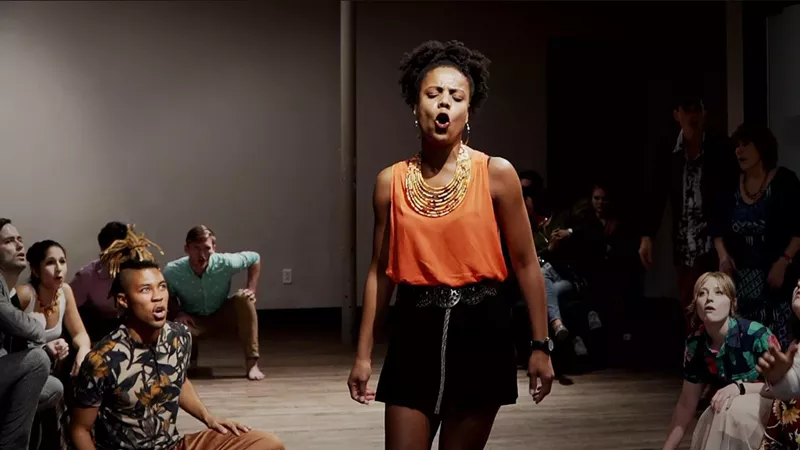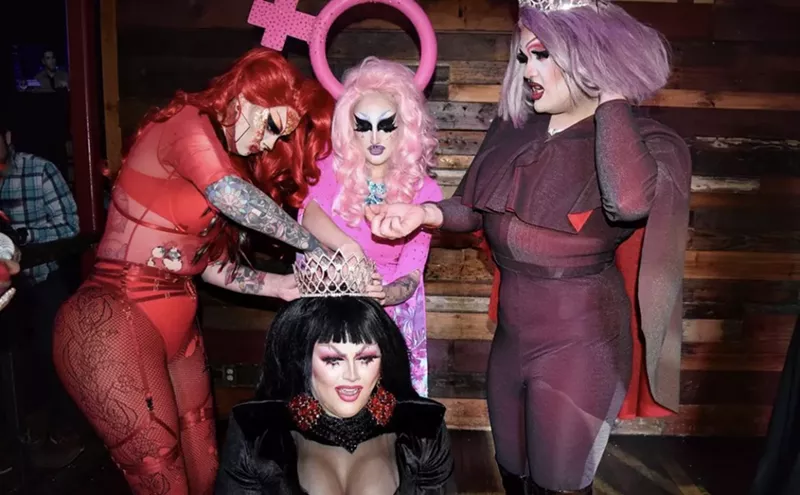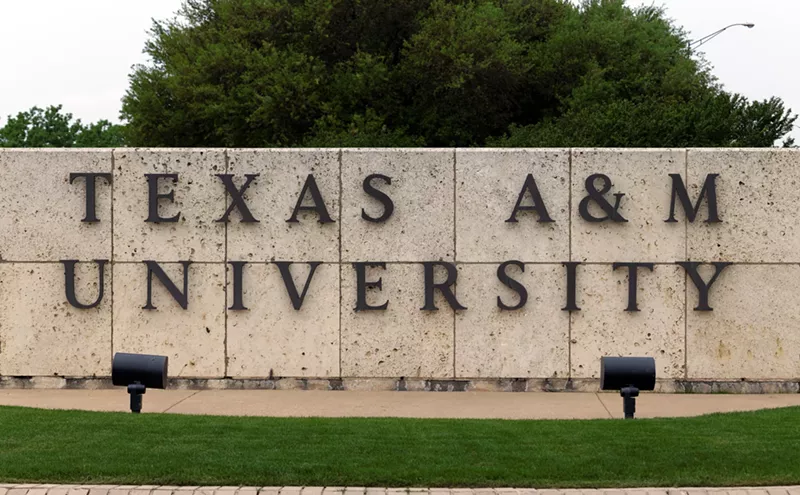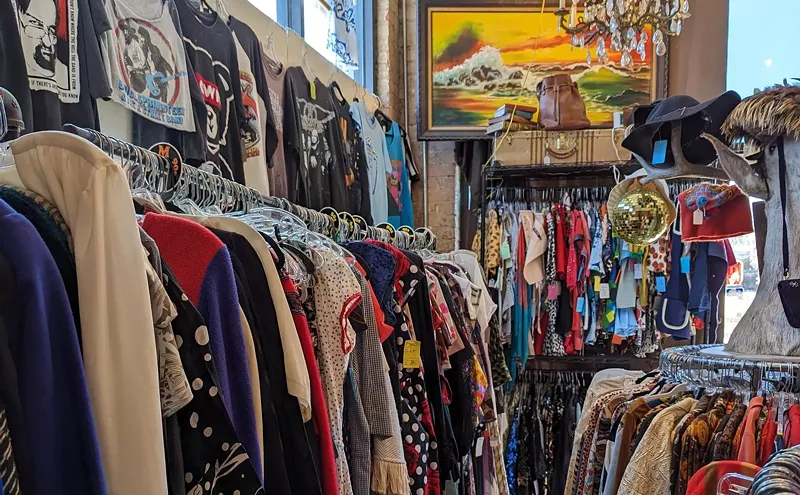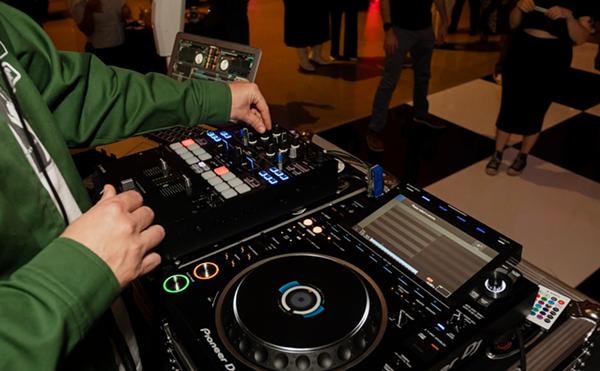When stage actress Cora Cardona moved to Dallas from Austin, the only acting roles she could find at first were those of a maid. A Mexican maid, specifically. In the 1980s, there were few theater companies in Dallas, and none were doing anything remotely related to Latin America. Their focus was on European and American playwrights.
“My mom went to the Bellas Artes Art School in Mexico City, trained with [Chilean director] Alejandro Jodorowsky [and] she had this wonderful, cosmopolitan exposure,” says Teatro Dallas executive director Sara Cardona.
Not only was Cora Cardona typecast despite her training, but she found that acting opportunities were few and far between. So she and her husband Jeff Hurst set out to create those opportunities for herself and other actors like her, by establishing Teatro Dallas in 1985.
Sara, their daughter, explains that they created the theater company in part “to start educating the [Dallas] theater community about the rich tradition of Latin American playwriting.”
The couple got started by translating Spanish-written plays into English themselves, or together with professional translators, and putting on productions. The criteria for selecting plays is threefold. According to Sara Cardona, in addition to being well-written, a play must be structurally interesting and have an appealing narrative. Above all, the story must be relevant because, “If it doesn’t connect very directly to things that are happening in people’s lives, it’s a lot harder to develop audiences.”
For example, Teatro Dallas’ latest production was the regional premiere of a play called Villa by Chilean author Guillermo Calderon about three characters who have to decide what to do with a building that has a dark past tied to the dictatorship of General Pinochet. Teatro Dallas picked that play because of its witty dark humor. As they see it, a good writer can make the audience laugh about a taboo subject matter and, at the same time, make them struggle with it.
“This play is a platform to think about how we deal with history,” Cardona says of Villa. Its relevance lies in the fact that many American cities, Dallas included, are still debating the fate of its Confederate monuments. Should they be left as a reminder of terrible things that happened? Should history be erased? There's ample food for thought, both at the theater and at the city council.
Teatro Dallas reaches out to a community extending beyond its loyal following, particularly through a series of multidisciplinary interactive events. As a follow-up to Villa, they held an event called Monuments of the Future at the end of last year, where they invited local artists to come up with ideas for monuments in local public spaces, with a winner determined by the audience.“If it doesn’t connect very directly to things that are happening in people’s lives, it’s a lot harder to develop audiences." — Sara Cardona
tweet this
The theater company will also hold its biannual international festival. The upcoming 19th International Festival will present two shows at the Latino Cultural Center. Electric Hamsa, on Jan. 25, merges contemporary and traditional Middle Eastern dance with sci-fi in a celebration of Arab futurism. The Feb. 1 show consists of a multidisciplinary experience created by Mexican dancer Jimena Bermejo and Boston-based musician Chris Brokaw. In the spring, Teatro Dallas will put on a play about the Mexican American community in West Dallas, while this summer, Teatro Dallas will stage a family show based on Mayan mythology.
“We’re always doing different perspectives and bringing different actors that express the depth of our [Latin American] cultures,” says Sara Cardona of the theater's mission.
At the time Teatro Dallas was founded, Latino actors were seldom seen onstage. Because there were few openings, Latinos didn’t consider acting as a viable profession. Or they were typecast, like Cora Cardona was in the early days.
“People didn’t even imagine that Shakespeare had been produced in Mexico City … or you would go see a play and actors had very stilted accents,” Sara remembers. So, what Cora Cardona did was cast anyone for any role that she thought would work, no matter what the actor’s background or skin color. She practiced color-blind casting very early on.
Teatro Dallas has English-Spanish bilingual programs. Some actors have professional training in their home countries, but their English is limited, so they start out in bilingual productions. As they continue to work with the theater company and their language skills improve, they move on to other companies.
“We have a group of actors who have worked consistently with us, but we’re always looking for new people and offering new opportunities,” Sara Cardona says.
Her background is in visual arts. She was part of the Diez Latinas, a Common Thread exhibition that took place at the Latino Arts Center last July. Cardona is constantly looking for ways to combine visual and performing arts.
“In the visual arts we already have performance art," the artist says. "So for me it’s a very natural place to intersect with theater and with literature.”
When Sara was in high school, her mother Cora invited her and a couple of friends to create murals on the side of the theater in downtown Dallas. They also worked on the sets and made props.
“It was a very influential part of my life,” Sara says of growing up around Teatro Dallas, “because I grew up doing my homework in the theater while the actors were rehearsing.”
Although she was involved in theater life from a young age, Sara knew that acting was not for her. The visual artist works by herself but appreciates the communal aspect of acting, the way that theater brings people together.
Teatro Dallas is supported by the City of Dallas Office of Arts and Culture, the Texas Commission on the Arts, the National Endowment for the Arts and private donors, as well as foundation funding for specific projects. The theater company also obtains income from workshops, classes and productions. As for the future, the executive director hopes they can establish resident company status with the Latino Cultural Center. Although ideally the group will continue to grow, being a midsize company allows them to be flexible and to work quickly and strategically.
“We’ve been here for 35 years," Cardona says. "So it’s very important to continue to be committed to developing new plays, showcasing young playwrights, being inventive in terms of staging new things, (while) keeping it fresh and collaborative.”

